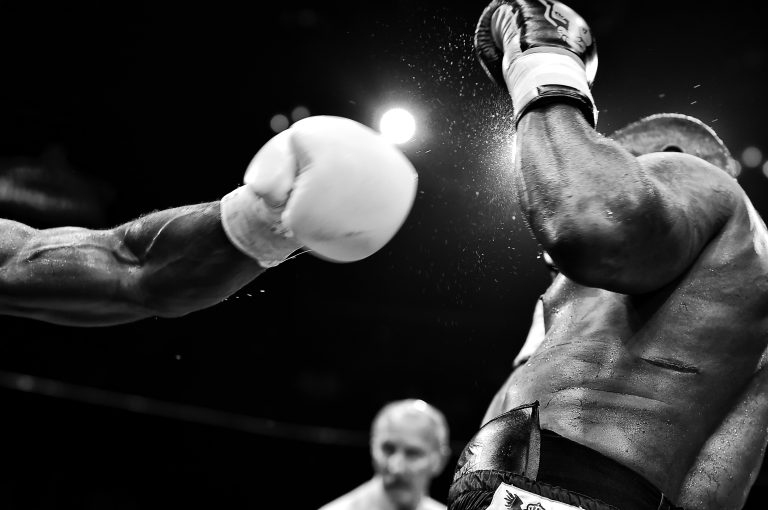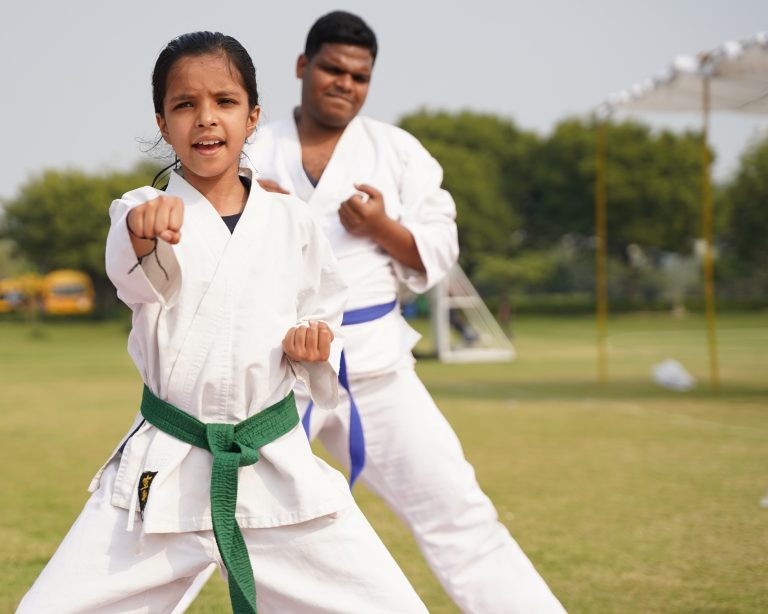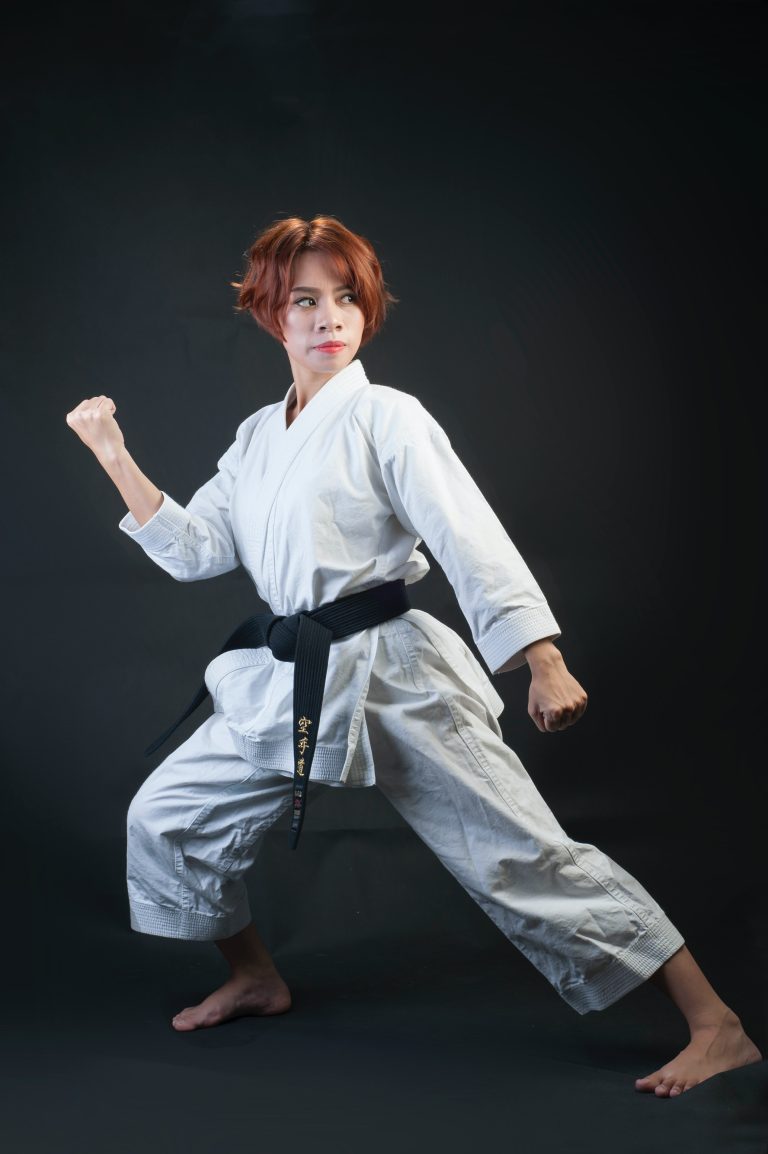The Chinese Word for Karate: History, Meaning, and Significance
Karate is a martial art that originated in Okinawa, Japan, and has since spread to various parts of the world. It is a form of self-defense that involves striking, kicking, and grappling techniques. The term „karate“ is actually derived from the Japanese language, but what is the Chinese word for karate? In this blog post, we will explore the Chinese word for karate, its history, meaning, and significance.
The Chinese Word for Karate: Tang Lang Quan
The Chinese word for karate is „Tang Lang Quan,“ which literally translates to „Praying Mantis Fist.“ This name comes from the style of martial arts that influenced the development of karate in Okinawa. The style is said to have been created by a Chinese boxer named Wong Long in the late 16th century. Wong Long observed the movements of a praying mantis and incorporated them into his fighting style.
Tang Lang Quan is a form of Chinese martial arts that emphasizes swift and precise movements, circular footwork, and close-range combat. It involves quick strikes, grappling techniques, and joint locks. The style is known for its effectiveness in close combat and its ability to surprise opponents with unexpected movements.
The Influence of Tang Lang Quan on Karate
The influence of Tang Lang Quan on karate can be traced back to the late 19th and early 20th centuries when Okinawan masters began to travel to China to study martial arts. It is believed that Funakoshi Gichin, the founder of Shotokan karate, studied Tang Lang Quan during his visit to China in 1922.
Funakoshi’s trip to China was part of a cultural exchange program between Japan and China, which aimed to promote cultural understanding and cooperation between the two countries. During his stay, Funakoshi learned various Chinese martial arts, including Tang Lang Quan, and incorporated some of its techniques into his own karate style.
The Significance of Tang Lang Quan in Modern Karate
Tang Lang Quan has had a significant impact on modern karate. Although karate and Tang Lang Quan are distinct martial arts with different styles and techniques, the influence of Tang Lang Quan can be seen in various aspects of modern karate.
For example, the circular footwork and swift movements of Tang Lang Quan are evident in some karate styles, such as Shotokan karate. Similarly, some karate techniques, such as joint locks and grappling, have their roots in Tang Lang Quan.
In addition to its influence on karate, Tang Lang Quan continues to be a popular and respected martial art in its own right. It is practiced by martial artists all over the world, and its techniques and principles are taught in many martial arts schools.
Frequently Asked Questions About the Chinese Word for Karate
Karate is a Japanese martial art that has gained popularity throughout the world. It is rooted in the concept of self-defense and discipline, and its movements are based on defensive and offensive techniques. However, many people wonder what the Chinese word for karate is, which is why we’ve compiled a list of the most frequently asked questions on this topic.
1. What is the Chinese word for karate?
The Chinese word for karate is „gongfu,“ which is also spelled „kung fu“ or „gung fu.“ The term „gongfu“ refers to any skill that is acquired through hard work and practice. Therefore, it can be used to describe any martial art, not just karate.
2. Is karate a Chinese martial art?
No, karate is not a Chinese martial art. It originated in Okinawa, Japan, and its techniques were influenced by Chinese martial arts, as well as other martial arts from Southeast Asia.
3. Are there any similarities between karate and Chinese martial arts?
Yes, there are similarities between karate and Chinese martial arts. Both focus on the development of physical and mental discipline, as well as the cultivation of self-defense techniques. Moreover, many of the movements found in karate are similar to those found in Chinese martial arts.
4. Why do some people confuse karate with Chinese martial arts?
Some people may confuse karate with Chinese martial arts because of the influence that Chinese martial arts had on the development of karate. Additionally, both martial arts emphasize the importance of discipline, dedication, and hard work in order to master the art.
5. Can I learn karate in China?
Yes, you can learn karate in China, but it may be difficult to find a teacher or school that teaches traditional Japanese karate. Instead, you may find schools that teach Chinese martial arts that incorporate some elements of karate.
6. Is it important to know the Chinese word for karate?
While it is not essential to know the Chinese word for karate, it can be helpful when communicating with Chinese-speaking people who are familiar with martial arts. Moreover, learning about the history and culture of martial arts can deepen your understanding and appreciation of the art.
7. Can I learn karate without knowing the Chinese word for it?
Yes, you can learn karate without knowing the Chinese word for it. The most important thing is to find a reputable teacher or school that can provide you with proper instruction and training.
In conclusion, while karate is not a Chinese martial art, it shares many similarities with Chinese martial arts, and the Chinese word for karate is „gongfu.“ Knowing the Chinese word for karate is not essential but can be helpful in certain situations, and finding a reputable teacher or school is more important for learning karate.
Introduction: Understanding the Chinese Word for Karate
Karate is a martial art that originated in Okinawa, Japan. It has spread across the globe, with millions of practitioners across the world. While Karate is a Japanese term, you might be surprised to know that the Chinese language has played a significant role in its development. In this guide, we will explore the Chinese word for Karate, its history, and meaning.
What is the Chinese Word for Karate?
The Chinese word for Karate is „kong shou dao“ (空手道). The term is derived from three Chinese characters. The first character, „kong“ (空), means „empty.“ The second character, „shou“ (手), means „hand.“ And the third character, „dao“ (道), means „way“ or „path.“ The term „kong shou dao“ translates to „the way of the empty hand.“
The History of Karate and its Connection to Chinese Culture
Karate has its roots in Okinawa, where it was developed from various martial arts practices brought in from China. In the late 19th and early 20th centuries, Okinawan masters began to develop and systematize what they called „karate.“ However, the influence of Chinese culture on Karate remained significant, and so did the use of Chinese words in Karate terminology.
The Chinese influence on Karate is reflected in the many terms and phrases that practitioners use, such as „kata“ (forms), „uchi deshi“ (live-in student), and „sensei“ (teacher). Even the term „karate“ itself is derived from Chinese. The Japanese kanji characters for „karate“ (空手) can be read as „kong shou“ in Chinese, which means „empty hand.“
The Meaning Behind the Chinese Word for Karate
The Chinese word for Karate, as we’ve seen, translates to „the way of the empty hand.“ The term „empty hand“ refers to the fact that Karate originally did not use weapons, although some schools do train with weapons. It is also said that the term „empty hand“ refers to the idea of the practitioner becoming an empty vessel, free from negative thoughts and emotions, in order to better focus on the task at hand.
The use of the word „way“ in the term „kong shou dao“ carries significant meaning as well. „Way“ implies a path to follow, a journey to undertake, and a pursuit of personal growth and development. In this context, Karate is seen not just as a physical practice but as a way of life.
How to Use the Chinese Word for Karate in Conversation
If you are interested in Karate, learning the Chinese term for it can be a fascinating and rewarding experience. Here are some steps to help you use the word „kong shou dao“ in conversation:
1. Learn the correct pronunciation: The word is pronounced „kong show dao.“ The first two syllables are pronounced quickly, with emphasis on the second syllable.
2. Identify the context: In what context do you want to use the word? Are you talking about the practice of Karate or a particular technique?
3. Use the word in context: Once you’ve identified the context, use the term „kong shou dao“ in your conversation. For example, „I’m interested in learning kong shou dao“ or „I’m practicing a new kong shou dao technique.“
Conclusion: The Significance of the Chinese Word for Karate
Karate is a fascinating martial art with deep roots in both Japanese and Chinese cultures. The Chinese word for Karate, „kong shou dao,“ reflects the history and meaning of Karate in many ways. As you explore Karate further, being familiar with this term can deepen your appreciation and understanding of the art. Remember to continue your research and practice to gain a better understanding of the Chinese word for Karate and its history.
Inhaltsverzeichnis






